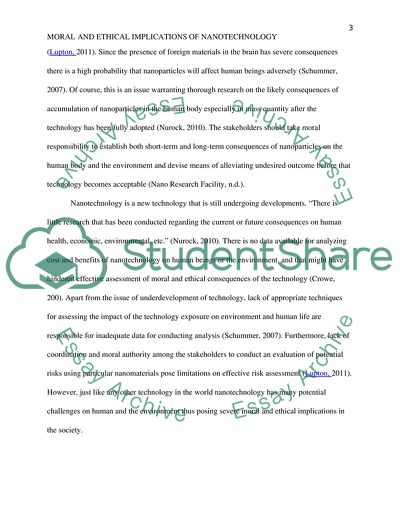Cite this document
(Moral and Ethical Implications of Nanotechnology Report Example | Topics and Well Written Essays - 2500 words, n.d.)
Moral and Ethical Implications of Nanotechnology Report Example | Topics and Well Written Essays - 2500 words. https://studentshare.org/ethics/1836942-moral-and-ethical-implications-of-nanotechnology
Moral and Ethical Implications of Nanotechnology Report Example | Topics and Well Written Essays - 2500 words. https://studentshare.org/ethics/1836942-moral-and-ethical-implications-of-nanotechnology
(Moral and Ethical Implications of Nanotechnology Report Example | Topics and Well Written Essays - 2500 Words)
Moral and Ethical Implications of Nanotechnology Report Example | Topics and Well Written Essays - 2500 Words. https://studentshare.org/ethics/1836942-moral-and-ethical-implications-of-nanotechnology.
Moral and Ethical Implications of Nanotechnology Report Example | Topics and Well Written Essays - 2500 Words. https://studentshare.org/ethics/1836942-moral-and-ethical-implications-of-nanotechnology.
“Moral and Ethical Implications of Nanotechnology Report Example | Topics and Well Written Essays - 2500 Words”. https://studentshare.org/ethics/1836942-moral-and-ethical-implications-of-nanotechnology.


